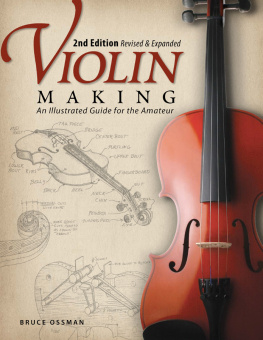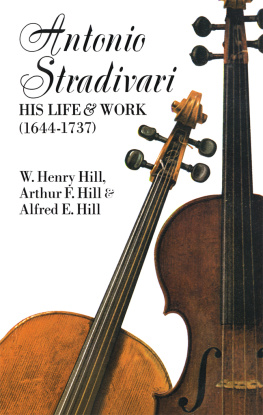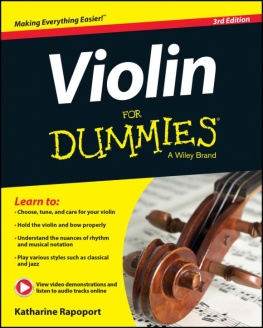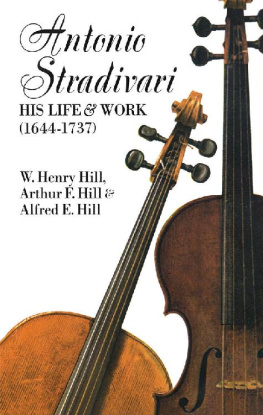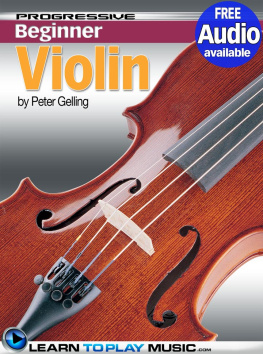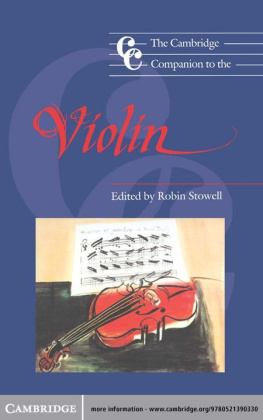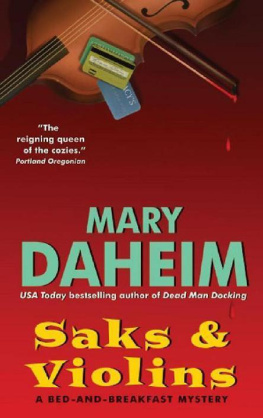VIOLINS
Violins: Local Meanings, Globalized Sounds examines the violin as an object of meaning in a variety of cultural and historical contexts, and as a vehicle for introducing anthropological issues. Each chapter highlights concepts as taught in lower-level anthropology courses, and includes teaching and learning tools. Chapters range from a memoir-like social biography of a single instrument to explorations of violins in relation to technology, labor, the environment, migration, globalization, childhood, cultural understandings of talent and virtuosity, and prestige.
Pamela A. Moro is Professor of Anthropology at Willamette University. Her previous work includes Magic, Witchcraft, and Religion: A Reader in the Anthropology of Religion (Ninth Edition, McGraw-Hill, 2013).
The Routledge Series for Creative Teaching and Learning in Anthropology
Editors: Richard H. Robbins, SUNY Plattsburgh and Luis A. Vivanco, University of Vermont
This series is dedicated to innovative, unconventional ways to connect undergraduate students and their lived concerns about our social world to the power of social science ideas and evidence. We seek to publish titles that use anthropology to help students understand how they benefit from exposing their own lives and activities to the power of anthropological thought and analysis. Our goal is to help spark social science imaginations and, in doing so, open new avenues for meaningful thought and action.
Books in this series pose questions and problems that speak to the complexities and dynamism of modern life, connecting cutting-edge research in exciting and relevant topical areas with creative pedagogy.
Available
Seafood
Ocean to the Plate
Shingo Hamada and Richard Wilk
Love Letters
Saving Romance in the Digital Age
Michele Janning
The Baseball Glove
History, Material, Meaning, and Value
David Jenemann
Persian Carpets
The Nation as a Transnational Commodity
Minoo Moallem
An Anthropology of Money
A Critical Introduction
Tim Di Muzio and Richard H. Robbins
Coffee Culture, 2e
Local Experiences, Global Connections
Catherine M. Tucker
Re-Imagining Milk, 2e
Cultural and Biological Perspectives
Andrea S. Wiley
Reconsidering the Bicycle
An Anthropological Perspective on a New (Old) Thing
Luis Vivanco
Alcohol
Social Drinking in Cultural Context
Janet Chrzan
The World of Wal-Mart
Discounting the American Dream
Nicholas Copeland and Christine Labuski
Lycra
How a Fabric Shaped America
Kaori OConnor
Fake Stuff
China and the Rise of Counterfeit Goods
Yi-Chieh Jessica Lin
VIOLINS
Local Meanings, Globalized Sounds
Pamela A. Moro
First published 2019
by Routledge
52 Vanderbilt Avenue, New York, NY 10017
and by Routledge
2 Park Square, Milton Park, Abingdon, Oxon, OX14 4RN
Routledge is an imprint of the Taylor & Francis Group, an informa business
2019 Taylor & Francis
The right of Pamela A. Moro to be identified as author of this work has been asserted by her in accordance with sections 77 and 78 of the Copyright, Designs and Patents Act 1988.
All rights reserved. No part of this book may be reprinted or reproduced or utilised in any form or by any electronic, mechanical, or other means, now known or hereafter invented, including photocopying and recording, or in any information storage or retrieval system, without permission in writing from the publishers.
Trademark notice: Product or corporate names may be trademarks or registered trademarks, and are used only for identification and explanation without intent to infringe.
Library of Congress Cataloging-in-Publication Data
Names: Moro, Pamela A. author.
Title: Violins: local meanings, globalized sounds / Pamela A. Moro.
Description: New York, NY: Routledge, 2019. | Includes bibliographical references and index. |
Identifiers: LCCN 2018039804 (print) | LCCN 2018042111 (ebook) |
ISBN 9780429468292 (Master Ebook) | ISBN 9780429887208 (Web pdf) |
ISBN 9780429887192 (ePub) | ISBN 9780429887185 (Mobipocket) |
ISBN 9781138605138 (hardback) | ISBN 9781138605145 (pbk.)
Subjects: LCSH: Violin.
Classification: LCC ML800 (ebook) | LCC ML800 .M67 2019 (print) | DDC 787.2dc23
LC record available at https://lccn.loc.gov/2018039804
ISBN: 978-1-138-60513-8 (hbk)
ISBN: 978-1-138-60514-5 (pbk)
ISBN: 978-0-429-46829-2 (ebk)
Typeset in New Baskerville
by codeMantra
CONTENTS
The premise of these short books on the Anthropology of Stuff is that stuff talks, written into the biographies of everyday items of our livescoffee, T-shirts, computers, iPods, flowers, drugs, and so forthare the stories that make us who we are and that make the world the way it is. From their beginnings, each item bears the signature of the people who extracted, manufactured, picked, caught, assembled, packaged, delivered, purchased, and disposed of it. And in our modern market-driven societies, our lives are dominated by the pursuit of stuff.
Examining stuff is also an excellent way to teach and learn about what is exciting and insightful about anthropological and sociological ways of knowing. Students, as with virtually all of us, can relate to stuff, while at the same time discovering through these books that it can provide new and fascinating ways of looking at the world.
Stuff, or commodities and things, are central, of course, to all societies, to one extent or another. Whether it is yams, necklaces, horses, cattle, or shells, the acquisition, accumulation, and exchange of things is central to the identities and relationships that tie people together and drive their behavior. But never, before now, has the craving for stuff reached the level it has; and never before have so many people been trying to convince each other that acquiring more stuff is what they most want to do. As a consequence, the creation, consumption, and disposal of stuff now threaten the planet itself. Yet to stop or even slow down the manufacture and accumulation of stuff would threaten the viability of our economy, on which our society is built.
This raises various questions. For example, what impact does the compulsion to acquire stuff have on our economic, social, and political well-being, as well as on our environment? How do we come to believe that there are certain things that we must have? How do we come to value some commodities or form of commodities above others? How have we managed to create commodity chains that link peasant farmers in Colombia or gold miners in Angola to wealthy residents of New York or teenagers in Nebraska? Who comes up with the ideas for stuff and how do they translate those ideas into things for people to buy? Why do we sometimes consume stuff that is not very good for us? These short books examine such questions and more.



